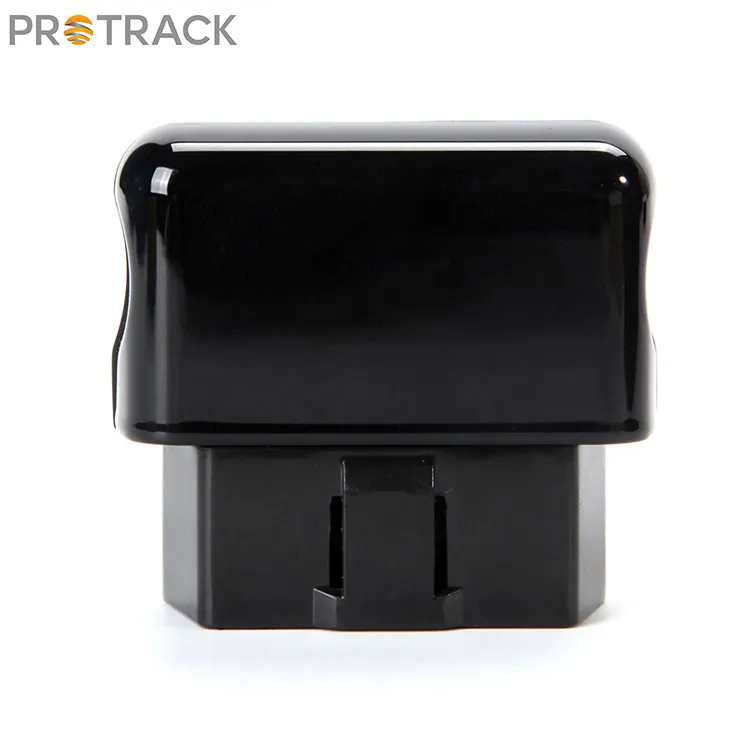Information about OBD Tracker For All Cars
2024-07-27
An OBD (On-Board Diagnostics) tracker for cars is a device that plugs into a vehicle’s OBD-II port to monitor and track various aspects of the car’s performance, health, and location. These trackers are commonly used for vehicle diagnostics, fleet management, and personal vehicle tracking. Here’s an overview of OBD trackers:
Key Features:
1. OBD-II Port Compatibility:
- Standard Port: Designed to plug into the OBD-II port, which is standard in most vehicles manufactured since 1996.
- Diagnostic Data: Accesses real-time data from the vehicle's computer, including engine performance, emissions, and trouble codes.
2. Tracking and Monitoring:
- Location Tracking: Provides GPS tracking to monitor the vehicle’s location in real time.
- Performance Monitoring: Tracks various performance metrics such as fuel efficiency, engine temperature, and RPM (revolutions per minute).
- Diagnostic Information: Reads and clears trouble codes, monitors engine performance, and provides diagnostic data.
3. Connectivity:
- Wireless: Many OBD trackers use Bluetooth or Wi-Fi to connect to a smartphone app or a web-based platform.
- Cellular: Some advanced models use cellular networks to provide real-time updates and alerts.
4. Alerts and Notifications:
- Maintenance Reminders: Sends notifications for routine maintenance tasks such as oil changes, tire rotations, and upcoming service intervals.
- Diagnostic Alerts: Provides alerts for engine issues, fault codes, and performance anomalies.
5. Integration with Apps:
- Mobile Apps: Compatible with mobile apps for iOS and Android that provide a user-friendly interface for monitoring vehicle data.
- Web Platforms: Some trackers offer web-based platforms for more detailed analysis and reporting.
6. Historical Data:
- Data Logging: Records historical data on vehicle performance, location, and diagnostics for later review.
Applications:
1. Personal Vehicle Tracking:
- Security: Helps in tracking the location of your vehicle in case of theft or unauthorized use.
- Maintenance: Assists in keeping track of vehicle health and maintenance needs.
2. Fleet Management:
- Tracking: Monitors the location and status of multiple vehicles in a fleet.
- Performance Analysis: Analyzes performance metrics to optimize fuel efficiency and vehicle utilization.
3. Driver Behavior Monitoring:
- Behavior Analysis: Tracks driving habits such as speed, acceleration, and braking to improve safety and efficiency.
- Coaching: Provides feedback to drivers to encourage safer driving practices.
4. Insurance Monitoring:
- Usage-Based Insurance: Some insurance companies offer discounts based on driving behavior monitored by an OBD tracker.
Benefits:
1. Enhanced Vehicle Management: Provides comprehensive data on vehicle health and performance for better management and maintenance.
2. Real-Time Tracking: Enables real-time location tracking for improved security and fleet management.
3. Cost Savings: Helps in identifying issues early, potentially reducing repair costs and improving fuel efficiency.
4. Informed Decisions: Provides valuable insights into driving habits and vehicle performance for better decision-making.
Installation and Usage:
1. Installation:
- Plug and Play: Most OBD trackers are easy to install by simply plugging them into the OBD-II port located under the dashboard.
- App Setup: Connect to a mobile app or web platform as per the manufacturer’s instructions.
2. Configuration:
- Pairing: Pair the tracker with your smartphone or computer using Bluetooth, Wi-Fi, or cellular networks.
- Customization: Set up alerts, notifications, and preferences according to your needs.
3. Maintenance:
- Updates: Keep the device firmware and app updated for optimal performance and security.
- Monitoring: Regularly check the app or web platform for updates on vehicle status and diagnostics.
Considerations:
- Compatibility: Ensure the OBD tracker is compatible with your vehicle's make and model, and supports OBD-II protocols.
- Features: Choose a tracker with features that match your specific needs, such as real-time tracking, diagnostics, or driver behavior monitoring.
- Privacy and Security: Consider the security measures provided by the tracker and app to protect your data.
OBD trackers provide valuable insights into vehicle performance and location, making them useful tools for both personal and professional vehicle management.



